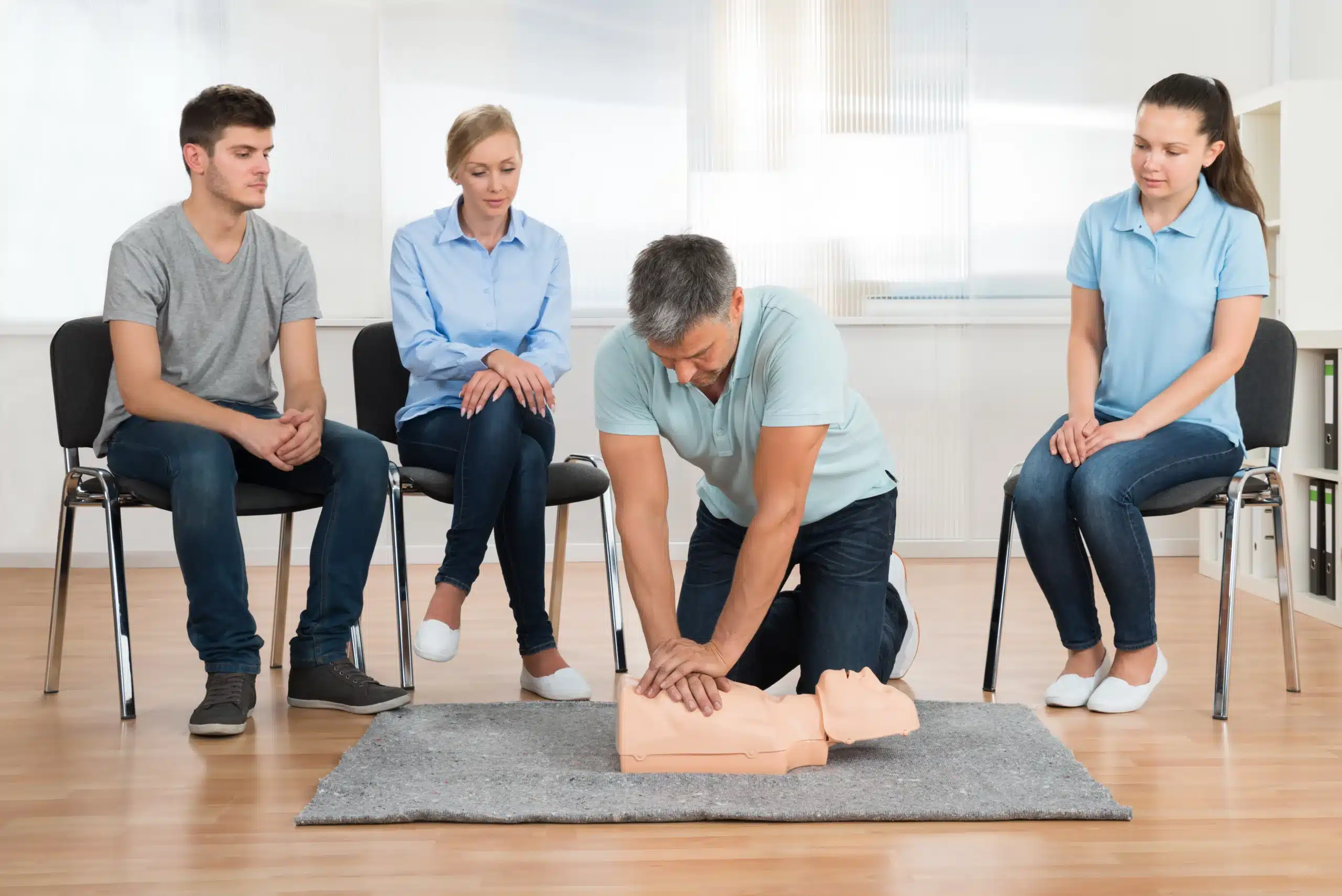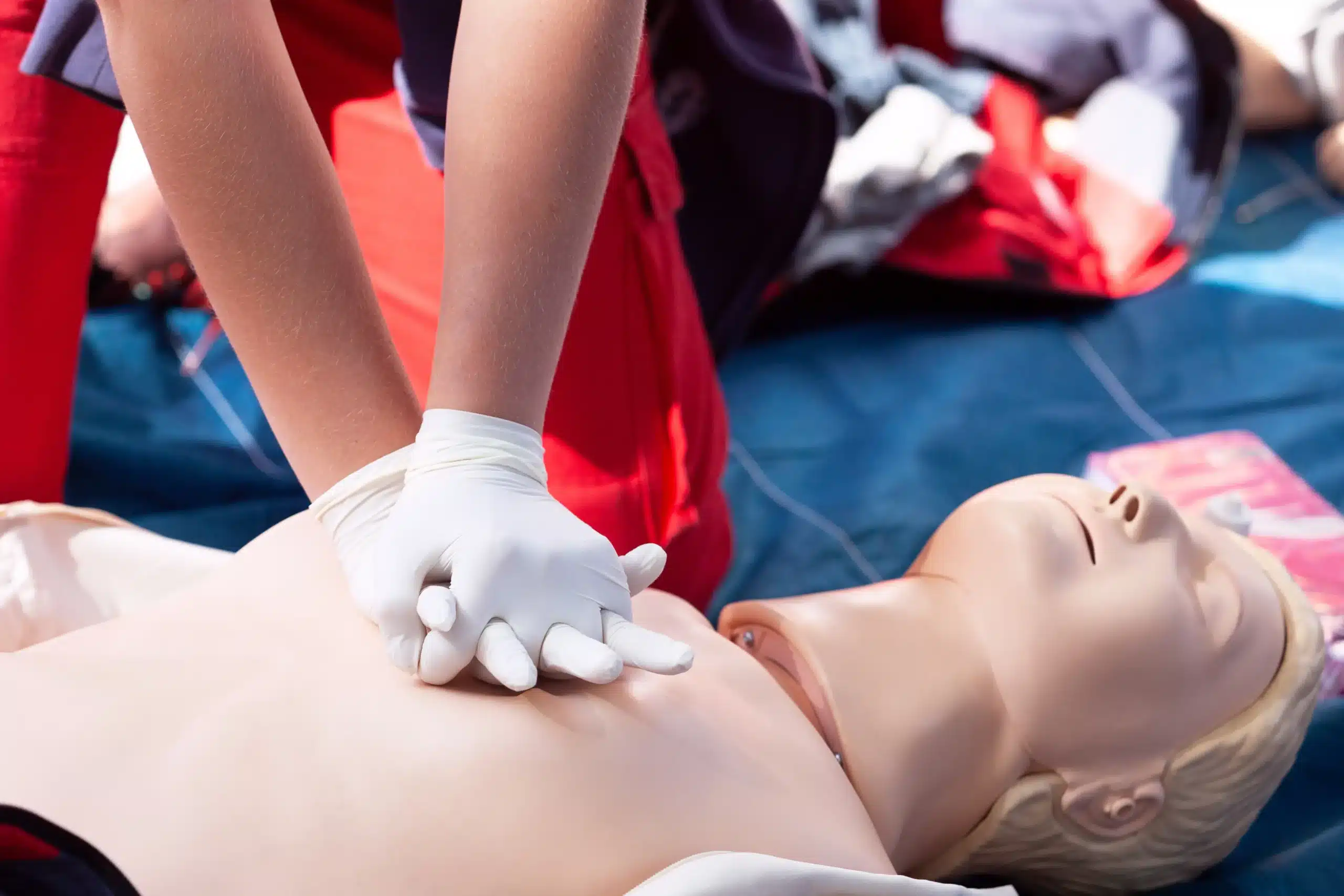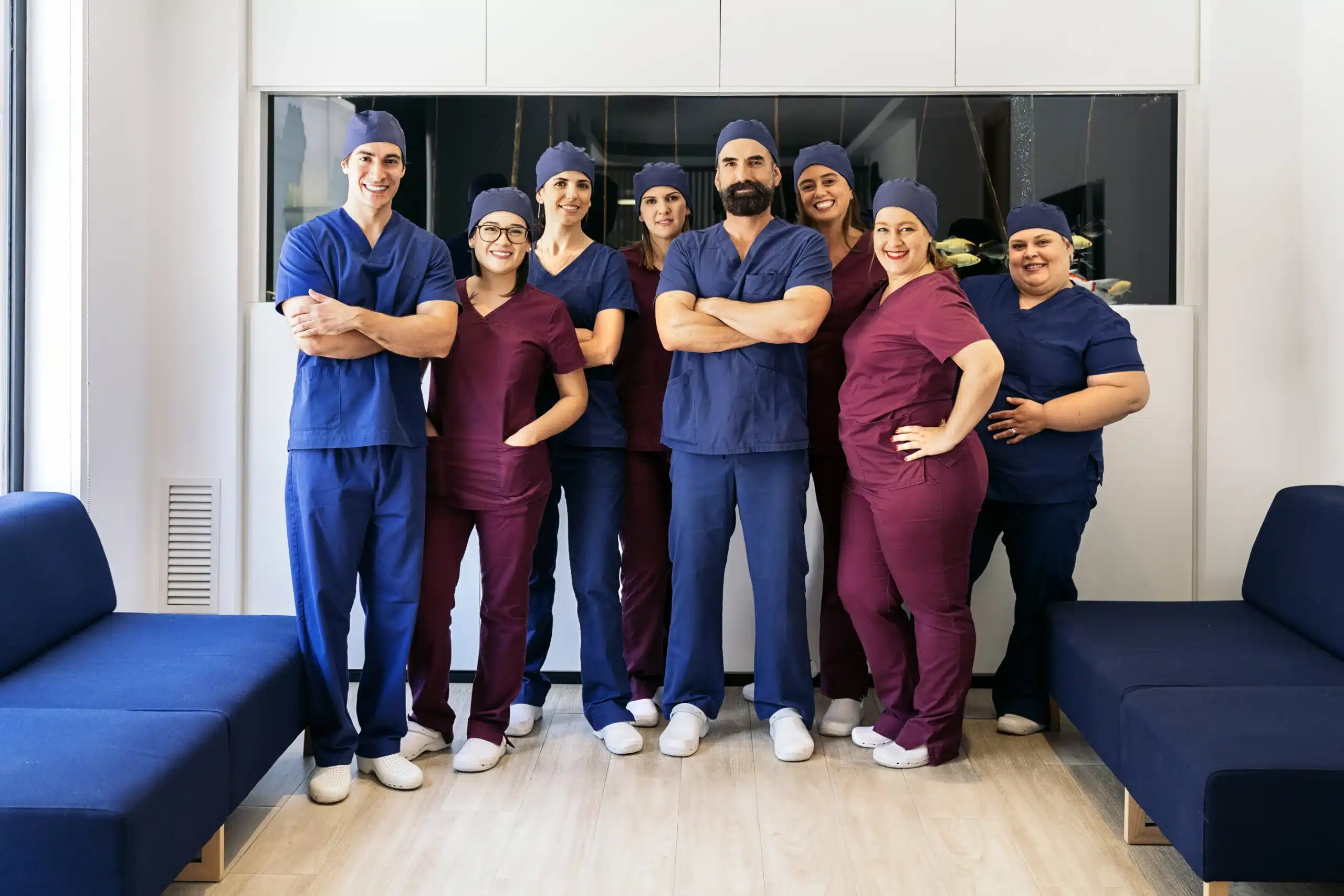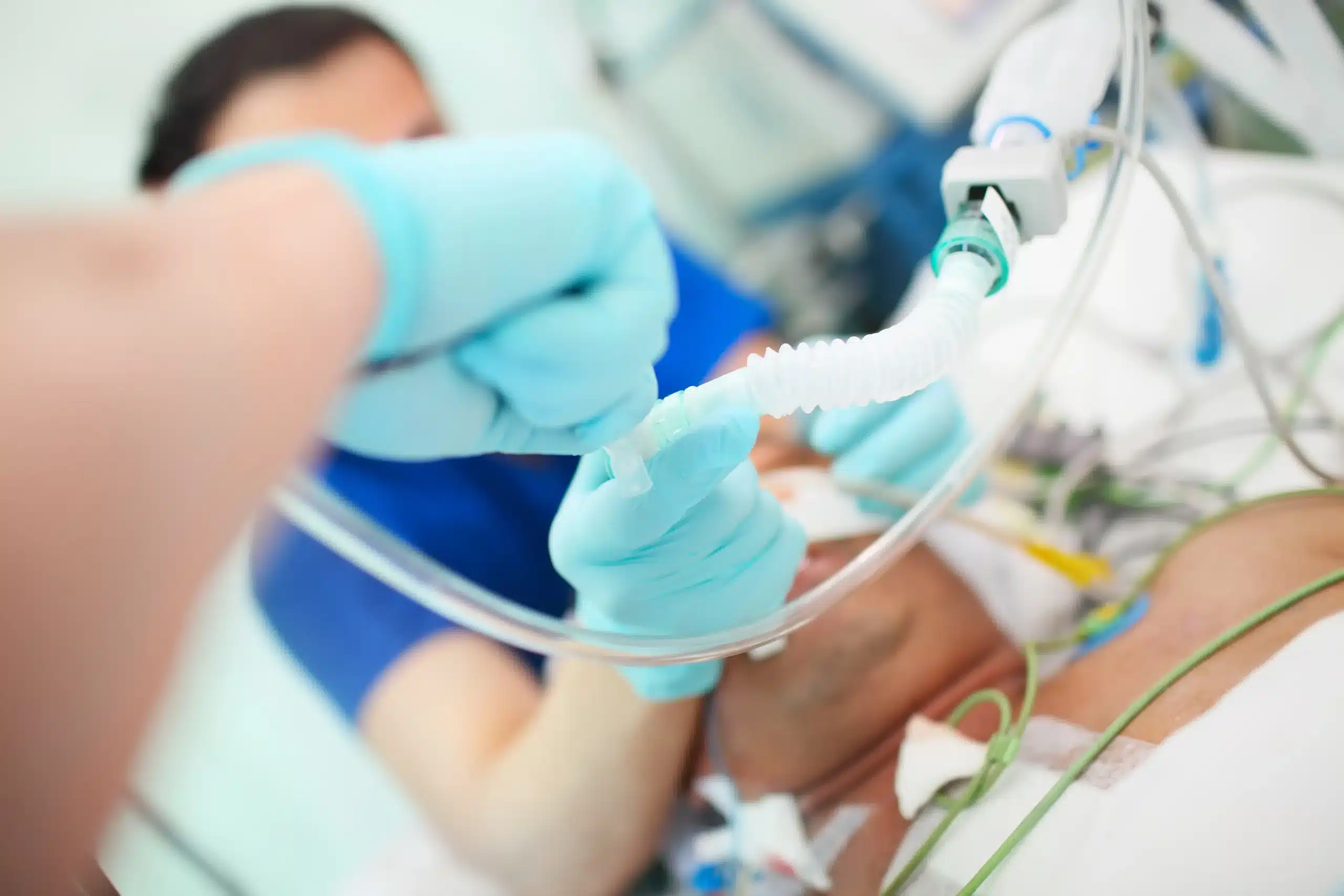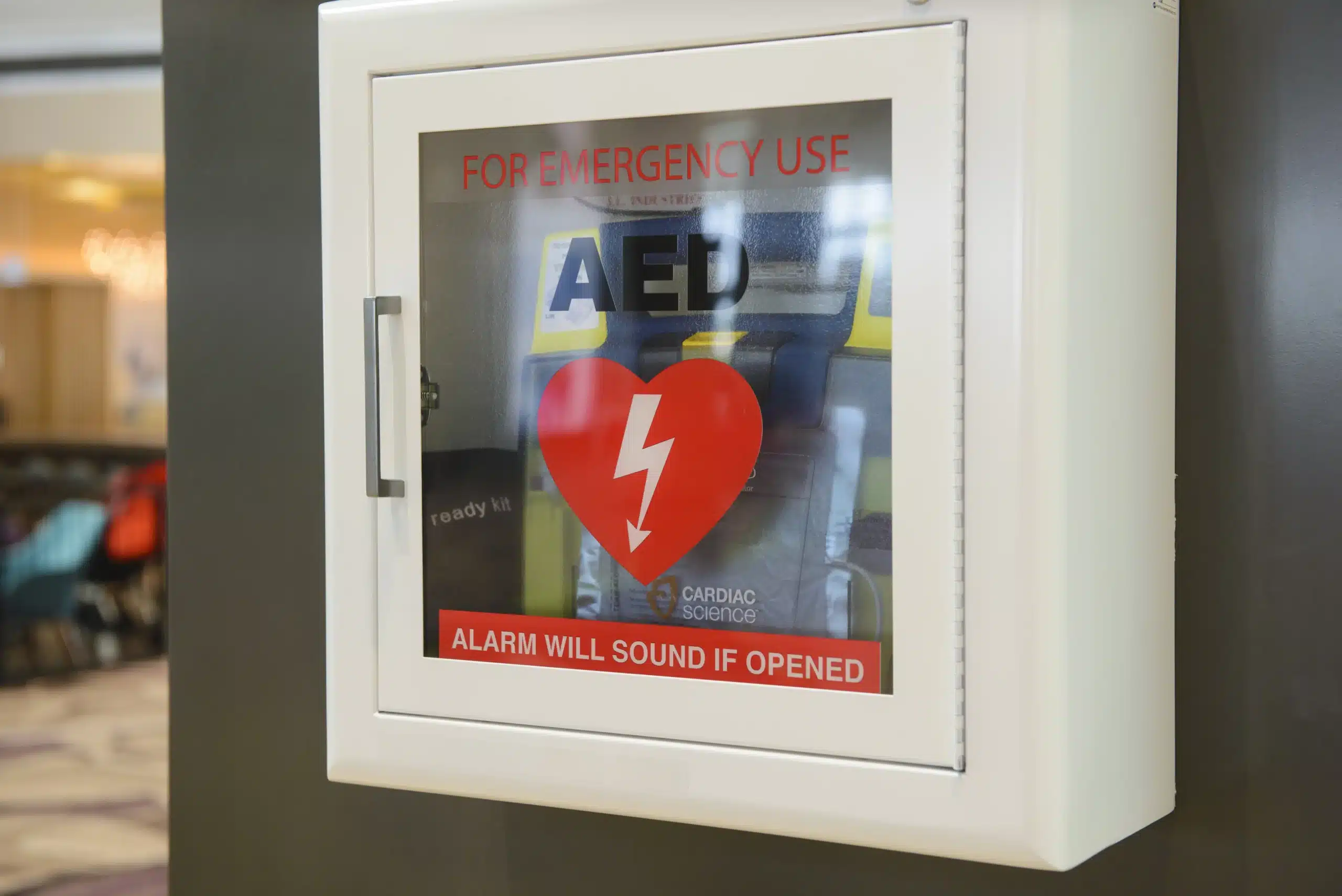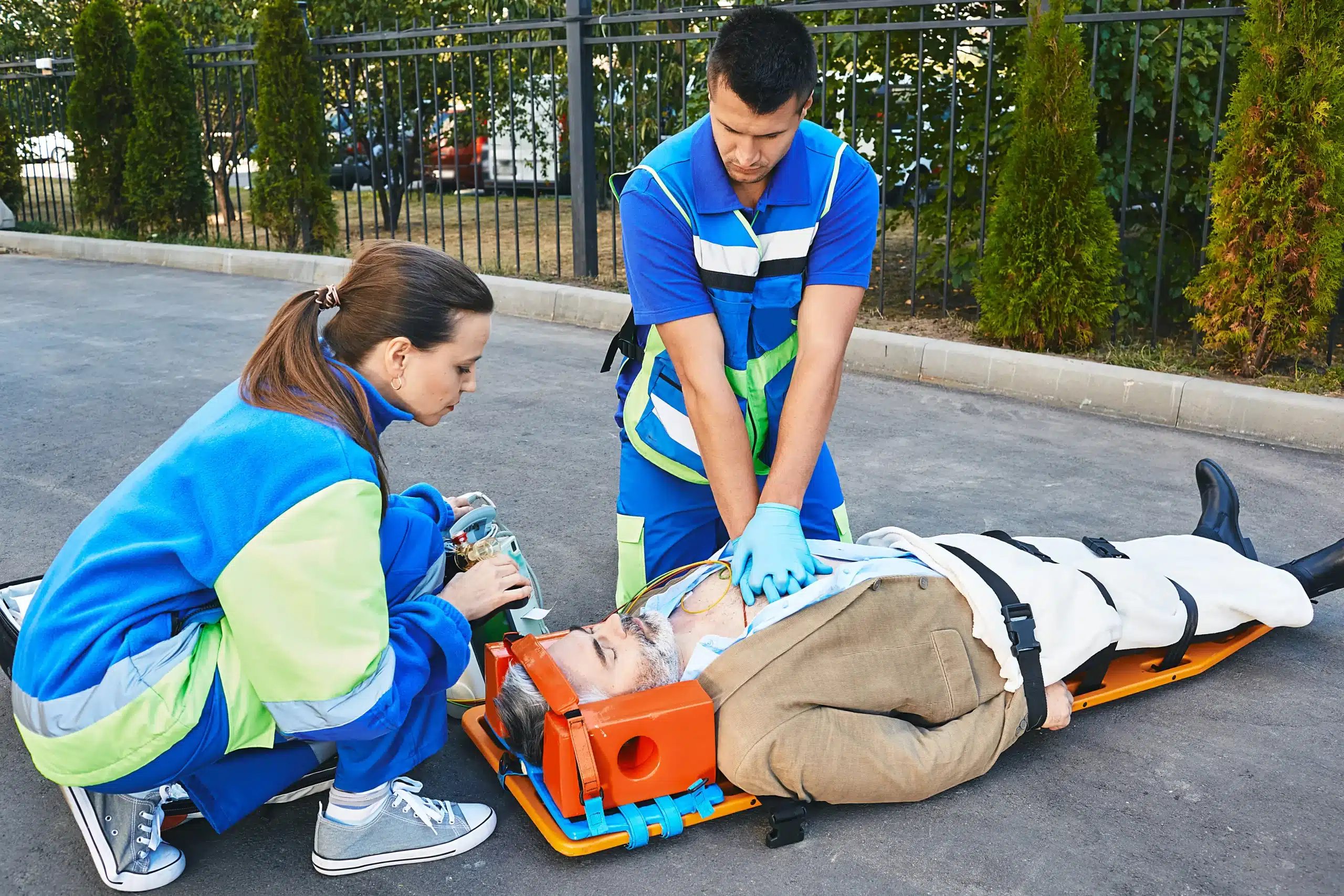Working in healthcare often means juggling a demanding schedule. Finding time for continuing education, like BLS recertification, can feel like one more thing on an already overflowing to-do list. RQI BLS classes in San Mateo are designed with busy professionals in mind. This program offers a flexible, blended learning approach that combines online modules with short, hands-on skills sessions, making it easier to fit CPR training into your life. If you’re a healthcare provider in San Mateo, RQI BLS classes provide a convenient and effective way to maintain your certification and stay prepared for emergencies. This article will explore the benefits of RQI BLS classes in San Mateo, what to expect during training, and how this program can help you stay current with your certifications without sacrificing valuable time.
Key Takeaways
- RQI BLS provides a modern, flexible approach to CPR training. The blended learning format and short, frequent practice sessions make it easier to fit into busy schedules.
- Hands-on skills sessions and immediate feedback are key components of RQI BLS. This focus on practical application helps build confidence and ensures you’re providing high-quality CPR.
- RQI BLS certification benefits both healthcare professionals and community members. It’s a valuable asset for career advancement and empowers individuals to respond effectively in emergencies.
What are RQI BLS Classes?
The RQI (Resuscitation Quality Improvement) program offers a modern approach to CPR training designed for healthcare professionals. It combines online learning with hands-on skills practice, allowing participants to maintain their certification flexibly. This program is especially popular in San Mateo, where healthcare providers can efficiently earn their official American Heart Association BLS, ACLS, and PALS certification cards.
BLS Training: Then and Now
Traditional BLS training often involved lengthy courses and infrequent practice. RQI has revolutionized this approach by offering short, frequent practice sessions that easily fit into busy schedules. This ensures healthcare providers are always prepared to deliver effective CPR in emergencies. The RQI program emphasizes maintaining CPR skills and knowledge, critical for improving survival rates from cardiac arrest. Ongoing training and assessment help providers stay proficient in their skills.
Key Features of RQI BLS
One of the standout features of RQI training is its flexible format. The blend of online learning and hands-on skills sessions allows healthcare providers to learn at their own pace while still receiving the necessary in-person training. RQI also includes simulation stations that maximize the effectiveness of in-person training by providing real-time coaching and feedback. This allows participants to learn high-quality CPR techniques quickly and efficiently. This focus on ongoing skill development and assessment enhances individual competency and contributes to better patient outcomes. You can explore the benefits of flexible learning with resources like SureFire CPR.
Find RQI BLS Classes in San Mateo
Safety Training Seminars: Your Trusted Provider
Safety Training Seminars is a woman-owned AHA Training Center offering high-quality American Heart Association BLS, ACLS, PALS, CPR, and First Aid courses in San Mateo, CA. We serve San Mateo, Daly City, and Millbrae, and are committed to providing excellent customer service and a low price guarantee. You can find information on our CPR and First Aid classes, along with other courses like BLS and ACLS, on our website. We understand the importance of convenient and affordable training, which is why we focus on making our courses accessible. Check out our low price guarantee for more information. For those seeking RQI training, we offer comprehensive RQI programs to help healthcare professionals maintain their certifications.
Flexible Class Schedules
One of the biggest advantages of RQI is its flexible, skills-based approach. RQI combines short, frequent practice sessions with online learning, making it easy to fit CPR training into a busy schedule. This blended learning method helps maintain skills and confidence, ensuring you’re always prepared. This adaptable format empowers healthcare providers to stay current with their certifications without disrupting their work lives.
Cost and Value of RQI BLS
Understand Your Investment
The American Heart Association RQI (Resuscitation Quality Improvement) program is the most popular and efficient way for medical and healthcare professionals in San Mateo to get their official American Heart Association BLS, ACLS, and PALS certification cards. RQI offers a flexible, skills-based approach to CPR training. Short, frequent practice sessions combined with online learning help maintain skills and confidence, easily fitting into busy schedules. This blended learning format not only makes scheduling easier but also reinforces skills regularly, leading to better retention and improved patient outcomes. Think of RQI as an investment in your professional development and a contribution to a safer community. By mastering these essential life-saving skills, you’re preparing yourself to make a difference.
Discounts and Promotions
BLS class prices in San Mateo vary based on the provider, the course format (in-person or blended learning), and any included extras. Many providers offer discounts for groups, students, or returning customers. Check directly with the training provider, like Safety Training Seminars, for the most up-to-date pricing and any available promotions. Some providers also offer online resources or pre-course videos to help you prepare and potentially reduce the overall training time. Explore these options to maximize the value of your training. Taking the time to research and compare options helps you find the best value and get the most out of your BLS training.
Inside an RQI BLS Class
RQI BLS classes blend online learning with in-person skills practice and testing. This approach offers flexibility and ensures competency in life-saving skills. Here’s what you can expect:
Online Learning
RQI training features an online learning component. You’ll access interactive modules, simulations, and assessments covering essential BLS concepts and techniques. This self-directed learning allows you to work through the material at your own pace and revisit topics as needed. RQI’s flexible, skills-based approach helps you fit training into your busy schedule, with short, frequent practice sessions combined with online learning to maintain skills and confidence. For more information on RQI training in San Mateo, see this guide.
In-Person Skills Testing
The online portion covers the knowledge base, but RQI BLS also emphasizes hands-on skills development. You’ll participate in in-person skills testing sessions using specialized equipment like the RQI simulation station. These sessions allow instructors to observe your technique, provide personalized feedback, and ensure you meet the required standards. RQI training is part of the HeartCode® Complete curriculum from the American Heart Association (AHA), featuring online learning and skills checks.
Time Commitment and Flexibility
A major advantage of RQI BLS is its flexible learning schedule. The blended learning format allows you to complete the online modules at your convenience. This makes RQI a practical choice for busy professionals. The in-person skills sessions are typically shorter and more frequent than traditional BLS courses, further reducing the overall time commitment. You can learn more about how RQI fits into a busy schedule here.
Benefits of RQI BLS Certification
Earning your RQI BLS certification offers advantages both professionally and personally. It’s a valuable asset whether you’re a healthcare provider or want to be prepared for emergencies.
Advance Your Career
In healthcare, maintaining BLS skills is crucial. The RQI program offers a flexible way to stay up-to-date, fitting easily into busy schedules through short, frequent practice and online learning. This approach, as highlighted by Millbrae CPR Classes, ensures you’re always prepared to deliver effective CPR. Consistent CPR skill maintenance, as The Resuscitation Coach points out, is critical for positive patient outcomes during cardiac arrest. RQI certification demonstrates your commitment to high-quality care, which can enhance your career.
Empower Yourself and Your Community
RQI BLS certification empowers you to make a difference. San Mateo CPR Courses emphasizes how RQI builds confidence in providing high-quality CPR. This confidence translates to quicker, more effective responses during emergencies. Learning BLS, as explained by Medtigo, equips individuals to save lives, making your community safer. Whether you’re a healthcare professional, a parent, or a concerned citizen, RQI BLS certification provides the skills and confidence to respond effectively in critical situations.
Who Should Take RQI BLS?
Healthcare Professionals
RQI BLS is crucial for healthcare providers. It equips them with the skills and knowledge to deliver effective CPR during cardiac arrests. The program’s structure, featuring ongoing training and assessment, ensures that these vital skills remain sharp, which can significantly improve survival rates from cardiac arrest. RQI also helps healthcare professionals maintain their confidence in providing high-quality CPR through frequent, short practice sessions that easily fit into busy schedules. This approach allows professionals to stay up-to-date on the latest CPR guidelines and techniques, ultimately leading to better patient outcomes. For more details on BLS, visit our American Heart Association BLS page.
Community Members
While often associated with healthcare, BLS training is invaluable for anyone. Basic Life Support skills empower individuals to respond effectively to various emergencies. BLS certification covers essential techniques such as using an automated external defibrillator (AED), managing airways, and assisting someone who is choking. These skills can be applied anywhere, from the workplace to the home. RQI’s flexible, skills-based approach, combining short practice sessions with online learning, helps maintain skills and confidence, making it a practical choice for busy individuals. Learn more about how these skills can benefit you on our CPR and First Aid Certification page.
The RQI Difference: Learn and Retain Skills
Regular Practice
RQI represents a significant shift in how healthcare providers maintain their CPR skills. Instead of infrequent, lengthy recertification courses, RQI emphasizes short, regular practice sessions. These sessions fit easily into busy schedules, allowing healthcare professionals to refresh their knowledge and skills consistently. This approach reinforces proper technique and builds confidence, ensuring providers are always ready to respond effectively in emergencies. RQI’s flexible online learning component makes it even easier to integrate practice into your routine, so you can stay up-to-date on the latest CPR guidelines. Learn more about how RQI works in San Mateo with our RQI guide. For those in nearby Millbrae, we also offer a comprehensive guide to RQI in San Mateo tailored to your location.
Immediate Feedback
One of RQI’s most valuable features is its use of advanced technology to provide immediate feedback during practice. As you perform CPR on a manikin, the system analyzes your compressions and ventilations, offering real-time guidance on your technique. This immediate feedback helps you identify and correct any inconsistencies, ensuring you’re performing CPR to the highest standards. This focus on continuous improvement ensures that healthcare providers maintain optimal CPR skills, leading to better patient outcomes. Learn more about how RQI’s flexible training can fit into your busy schedule with this article on RQI and flexibility.
Prepare for Your RQI BLS Class
Getting ready for your RQI BLS class is simple. A little prep work can make a big difference in how much you get out of the course. Here’s what you need to know:
What to Bring
RQI BLS classes primarily focus on hands-on skills practice and assessment. You won’t need to bring much with you. Comfortable clothing is key, as you’ll be moving around and practicing techniques on mannequins. Bring a water bottle to stay hydrated, especially during longer sessions. While note-taking isn’t a primary focus, a small notepad and pen might be helpful for jotting down key reminders or questions for your instructor. Most importantly, come prepared to learn and with a positive attitude!
Pre-Course Resources
One of the best parts about RQI BLS is its flexible learning approach. Safety Training Seminars offers several resources to help you prepare for your in-person skills session. Many BLS providers offer online resources and pre-course videos to familiarize yourself with the core concepts and techniques before class. RQI combines short, frequent practice sessions with online learning, making it easier to fit CPR training into a busy schedule. Taking advantage of these resources can boost your confidence and make the in-person skills evaluation much smoother.
Maintain Your RQI BLS Skills
One of the biggest advantages of RQI BLS is how it helps healthcare providers maintain their skills long-term. Instead of cramming for a big test every two years, RQI focuses on frequent, short practice sessions. This approach helps build muscle memory and reinforces best practices, ensuring you’re always ready to respond effectively in a real-life emergency. The RQI program helps healthcare providers maintain their skills and confidence in providing high-quality CPR.
Ongoing Learning
RQI BLS uses a “little and often” approach to learning. You’ll engage in short, regular practice sessions and assessments to keep your skills fresh. This ongoing training helps you retain information better and build confidence in your abilities. These sessions fit easily into your busy schedule, making it easier to stay up-to-date with the latest CPR guidelines. RQI training provides healthcare providers with the tools and resources they need to maintain their CPR skills and knowledge.
Renewal Process
The RQI program simplifies the renewal process for your BLS certification. Instead of attending a traditional renewal course, you’ll maintain your skills through regular practice and assessments. This flexible system allows you to renew your AHA course completion card on an ongoing basis, ensuring your certification is always current. This streamlined approach saves you time and ensures you’re always prepared to provide high-quality care. Regular assessments help ensure providers maintain their CPR skills, which can improve survival rates from cardiac arrest.
Common RQI BLS Misconceptions
It’s natural to have questions about a new training program. Let’s clear up some common misconceptions about RQI BLS classes.
Hands-On Practice Concerns
One common question about RQI BLS classes is the perceived lack of hands-on practice. Many participants wonder about the absence of in-person practice for skills like assessing responsiveness, activating emergency response, managing choking, and using an AED. It’s important to understand how the RQI program structures its training. Unlike traditional BLS courses that emphasize extended in-person skills sessions, RQI BLS uses low-dose, high-frequency practice. This approach focuses on regular, short practice sessions to reinforce skills and improve retention. You’ll still demonstrate your skills competency, just in a different way. For more information about the RQI program structure, check out this helpful resource.
Time Commitment and Recertification Clarified
Another misconception is the time commitment required for RQI BLS certification. Some believe it takes significant time away from other responsibilities. In reality, the RQI program is designed for efficiency, allowing healthcare providers to refresh their CPR skills and knowledge without a huge time investment. This flexible approach ensures providers can maintain their skills and confidently respond to cardiac arrest situations. This article offers further insights into the realities of BLS training. RQI’s flexible, low-dose, high-frequency approach makes staying current with your certifications more manageable than traditional CPR recertification courses.
Related Articles
- RQI in San Mateo: Your Guide to Flexible CPR Training – San Mateo CPR Classes
- RQI PALS Classes in San Mateo: The Complete Guide – San Mateo CPR Classes
- CPR Certification in Daly City: Your Complete Guide – San Mateo CPR Classes
- Why CPR is Critical in Healthcare
- BLS Classes Near Me: Your Complete Guide – San Mateo CPR Classes
Frequently Asked Questions
How does RQI differ from traditional BLS training? RQI offers a blended learning approach combining online modules with short, frequent in-person skills sessions and assessments. Traditional BLS training usually involves longer, less frequent classroom-based courses. RQI’s flexible format makes it easier to fit training into a busy schedule while reinforcing skills regularly.
What does an RQI BLS class entail? You’ll complete online modules covering BLS concepts and techniques at your own pace. Then, you’ll participate in in-person skills sessions using simulation stations. Instructors provide real-time feedback, ensuring you meet the required standards. This combination of online learning and hands-on practice reinforces learning and builds confidence.
Who benefits from RQI BLS certification? RQI BLS certification is essential for healthcare professionals, ensuring they maintain up-to-date CPR skills. However, anyone can benefit from BLS training. Knowing how to perform CPR and other life-saving techniques can make a difference in various emergencies, both in professional and personal settings.
How often do I need to renew my RQI BLS certification? RQI BLS certification is maintained through ongoing practice and assessments, rather than a traditional renewal course. This means you’re continuously reinforcing your skills and knowledge, ensuring your certification remains current. This ongoing approach helps you stay prepared and confident in your abilities.
Is RQI BLS training accepted nationwide? Yes, RQI programs are based on the American Heart Association guidelines, and the certification is widely accepted. RQI follows the latest science and recommendations for CPR and emergency cardiovascular care, making it a valuable credential across the country.
